With the United States and Europe behind the curve on so many fronts — from the economic meltdown to the Arab Spring — observers have noted that U.S. President Barack Obama hoped his trip to Europe this week would inspire a new era of U.S.-European cohesion toward solving the world’s problems. “There are a whole variety of issues that he’s probably not going to solve on this trip, but he’s got to lay the groundwork that we need a united front,” says James Joyner, managing editor of the Atlantic Council in Washington. “At a minimum, he needs to overcome a […]
U.S. Foreign Policy Archive
Free Newsletter
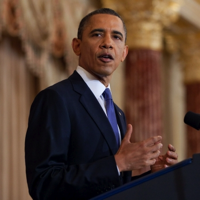
When President Barack Obama addressed the world’s Muslims from Cairo in 2009, his message, to put it bluntly, added up to, “Please love America — or at least stop hating it.” Two years later, when Obama took the podium once again to address the restive Middle East, his message was much different, but just as stark. This time he seemed to be saying, “Please believe that America still matters.” Obama’s May 19 speech from the State Department in Washington represented a desperate attempt at relevance. The president was essentially trying to demonstrate that during this transformative phase in the region, […]
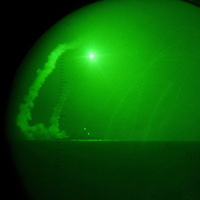
The debate over whether President Barack Obama violated the 1973 War Powers Resolution by committing U.S. forces to Operation Odyssey Dawn, including the drama of outraged legislators condemning yet another president for disregarding this curious law, was predictable. This most recent effort, like others before it, will probably come to nothing. But the legislation itself is dangerous, and the attempts to invoke it should stop. Republicans and Democrats now have an opportunity to remove the War Powers Resolution from our national life, and they should seize it. There is an unavoidable tension in the Constitution between the president’s role as […]

BEIJING — The global financial crisis catapulted China into a position of international economic leadership a decade earlier than Beijing’s strategists had intended. That significantly increased the urgency of rebalancing the Chinese economy away from the low-quality, export model toward higher-value, domestically driven growth. One consequence has been new and accelerated patterns of Chinese trade and investment abroad. For the United States, China’s largest economic partner, the implications of this new multidirectionalism are significant. But with recent figures showing that bilateral investment between the two countries is contracting, the U.S. must adapt its approach to this issue to ensure it […]
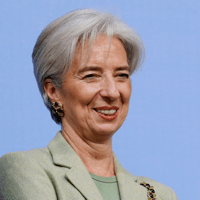
The International Monetary Fund is in an unexpected state of flux. The shocking sexual assault charges, arrest and subsequent resignation of former Managing Director Dominique Strauss-Kahn have turned the institution’s leadership on its ear. As the surprise of last week’s events dissipates, the focus now becomes selecting Strauss-Kahn’s replacement. In the coming weeks, a highly political process will unfold behind the scenes as the Europeans wrangle with a group of emboldened emerging-market countries for the fund’s top slot. In the middle lie the Americans, who hold the key to the success of either group. If the U.S. is shrewd, it […]

Much of the reaction to President Barack Obama’s speech on U.S. Middle East policy last Thursday focused on his reference to Israel’s pre-1967 borders as the basis for a future two-state solution with Palestine. But Obama’s speech was far more focused on long-term realities, suggesting that he is not really willing to push for some historic Israeli-Palestinian peace plan against the background of the Arab Spring. In fact, it’s fair to wonder why he chose to expend any of his political capital on this deadlocked issue, especially since he had to know that Israeli Prime Minister Benjamin Netanyahu would reject […]
Apparently President Barack Obama’s speech on U.S. Middle East policy has created quite the uproar among those who are shocked to learn that there is gambling going on in Rick’s place. So be it. For me, I’ll limit my textual analysis to the speech’s few sentences that might end up having a real-world impact. First place goes to this one, which represents the kind of contractual language against which future U.S. policy should be held accountable: Our support for these principles is not a secondary interest — today I am making it clear that it is a top priority that […]

The Stuxnet computer worm, WikiLeaks and the social-media-facilitated revolutions of the Arab Spring have already provided ample reason for a high-level U.S. policy on cyber issues. Now the killing of Osama bin Laden has provided an opening for a broader strategic dialogue in Washington, one that includes cyberspace in its proper context. This policy discussion has been a long time coming, and it has now arrived in the form of the Obama administration’s “International Strategy for Cyberspace” (.pdf), which presents concepts and ideals on a cluster of diplomatic, commercial and security issues related to the global information space that the […]
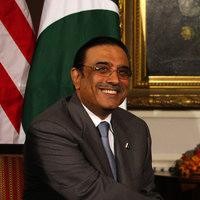
As the American media breathlessly reported the news of Osama bin Laden’s death, several observers pointed out an error made by CNN’s Wolf Blitzer, among others: Abbottabad is not a suburb of Islamabad, as he described it, but rather a garrison city located about 35 miles from the Pakistani capital. Blitzer’s mistake, though minor in the scheme of things, is emblematic of a broader failure by Americans to understand Pakistan. Much more is made of the outlandish conspiracy theories held by many Pakistanis about the U.S. than of Americans’ misconceptions about Pakistan. With the U.S.-Pakistan relationship in dire straits following […]
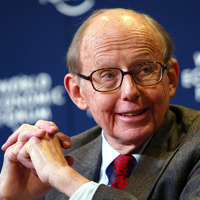
Last weekend I attended a seminar on “Liberty and Responsibility in the Major Works of Samuel P. Huntington.” The participants included former Huntington students, such as myself, as well as academics and independent scholars interested in his writings. Though it operated under Chatham House rules, meaning that participants’ contributions were off the record, the seminar served as a useful reminder of Huntington’s prolific genius and of the continued relevance of his work. Like many Harvard professors, Huntington was active in both real world politics and academia. He was an early New Deal supporter, advised several Democratic presidents and became a […]
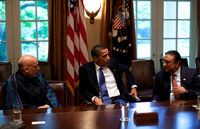
There is a profound sense of completion to be found in America’s elimination of Osama bin Laden, and the circumstances surrounding his death certainly fit this frontier nation’s historical habit of mounting major military operations to capture or kill super-empowered bad actors. Operation Geronimo, like most notable U.S. overseas interventions of the past quarter-century, boiled down to eliminating the one man we absolutely felt we needed to get to declare victory. Now we have the opportunity to redefine this “long war” to America’s most immediate advantage. I spot four basic options, each with their own attractions and distractions. Declare victory […]
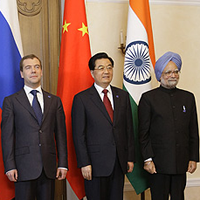
Much has been written about the potential impact that the demise of Osama bin Laden and the possible disintegration of al-Qaida will have on U.S. foreign policy, beginning with the question of whether this will trigger a more rapid disengagement from Afghanistan. But bin Laden’s death could also change the foreign policy calculus of other states, notably Russia, which for the past 10 years has promulgated its own version of the global war on terror as a central organizing principle for international affairs. Even before the Sept. 11 attacks, Moscow had already seen bin Laden as a threat to the […]
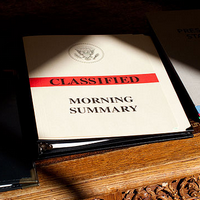
Last November, when the State Department learned that an outfit called WikiLeaks had acquired tens of thousands of secret U.S. diplomatic cables, the reaction in Washington bordered on panic. WikiLeaks had already released secret papers on the Afghanistan war, which the Pentagon said had gravely endangered many lives. Facing an impending torrent of classified documents covering U.S. interests on all continents, top American diplomats tried to brace the country for the harsh impact. They anxiously predicted the massive leak would be “harmful to our national security.” Five months after WikiLeaks broke the latch on its treasure trove and started scattering […]
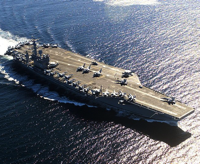
Driven in part by a recent article in Proceedings, the magazine of the United States Naval Institute, the debate over the nature and utility of aircraft carriers has once again erupted between naval analysts. In “Twilight of the $uperflous Carrier,” Capt. Henry J. Hendrix of the U.S. Navy and retired Lt. Col. J. Noel Williams of the U.S. Marine Corps argue that modern supercarriers are simply too expensive and too vulnerable to be usable weapons of war. They contend that the era of the supercarrier has come to an end, and that the future of naval power resides in warships […]

America’s successful assassination of Osama bin Laden, long overdue, naturally renews talk across the country about ending the nation’s military involvement in Afghanistan-Pakistan. Coupled with the ongoing tumult unleashed by the Arab Spring, Washington is once again being encouraged to reconsider its strategic relationship with the troubled Middle East. The underlying current to this debate has always been the widely held perception that America’s “oil addiction” tethers it to the unstable region. Achieve “energy independence,” we are told, and America would free itself of this terrible burden. The simplicity of that argument belies globalization’s crosscutting interdependencies, which only grow more […]

The recent events in the Arab world and Iran have led many in the West to urge President Barack Obama to take a stronger stance against human right abuses in Iran. The Obama administration should resist this temptation, as doing so would only serve to weaken Iran’s domestic opposition. As the popular uprisings in the Middle East have demonstrated, revolutions are most successful when they are organic. The voices calling on the Obama administration to give greater attention to human rights abuses in Iran have been forceful and diverse. A Washington Post editorial from last month, for instance, told the […]

If the death of Osama bin Laden marks the beginning of the end of the “global war on terrorism,” as Michael Cohen argued in a WPR briefing this week, it will have profound consequences for U.S. national security policy. For the last decade, the fight against international terrorism, as personified by bin Laden, was one of the central organizing principles of American foreign and defense policies. Preventing another Sept. 11 was the rationale for the military actions in Afghanistan and Iraq, as well as for a whole host of programs in dozens of countries around the world, ranging from security […]
